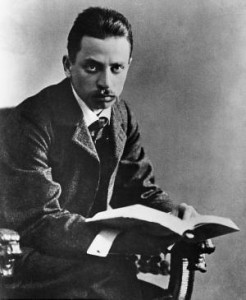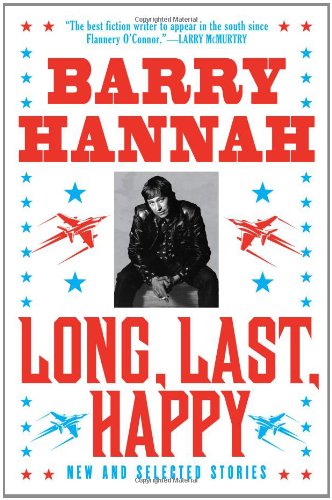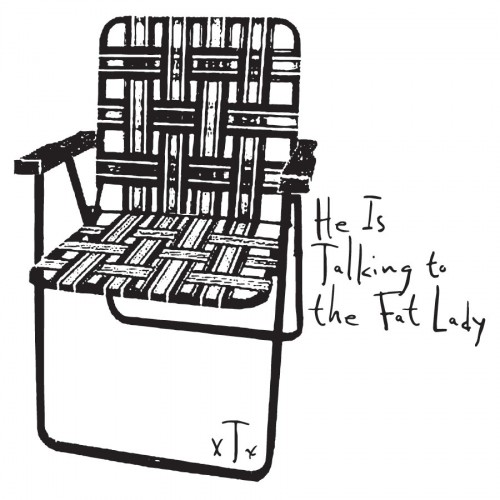Deus ex McFlurry: An Interview with Amelia Gray

This year saw the release of Amelia Gray’s second book, a collection of texts from FC2 called Museum of the Weird. More than a simple consolidation of stories into a single body, or even a creation of texts within the confines of one body and a strong mind, Museum of the Weird seems an object bent out of the mysterious and new, taking foreign objects, mysterious relations, freak peoples, and bringing them together in a wilding chorus of the strange and, holy shit, the entertaining, addictive. Last month I traded a bunch of emails with Amelia re: the new book, how she works, the function of belief, fate, trying, and just what the hell is with all the eating of the hair that shows up all throughout her writing.
* * *
B: Amelia, your prose has an interesting quality of being at once familiar and intuitive, while also at a seeming kind of remove: beyond just using objects and animals as active elements, there is at all times a feeling that you are way back in there somewhere, narrating your way your way rationally out of these intensely messed up, or as you say “weird,” prompts. Do you think your writing is a kind of emotional propaganda? Is all writing emotional propaganda?
A: The phrase “emotional propaganda” strikes me as redundant because any effective piece of rhetoric contains some emotional element. In propaganda and in writing there is an actor with an intent and an audience, a communicating element and a receiving element. Effective propaganda sets up a world in which only one outcome is possible in the same way that a great tragic story drives its characters towards an inescapable fate. So sure, in the way each genre stands as a completed product, writing is a kind of message propaganda that ultimately stands to aid or question a cause/idea/person. Fiction tends to attack or support ideas like love or trust or babies via scenes and characters, while war propaganda, for example–thinking of WWII posters here–attacks or supports a country or cause using ideas like love or trust or babies. There’s an emotional appeal in each, driven towards a point or points.
The biggest difference is that war propaganda or motivational speeches tend to get created with a message in mind beforehand, while fiction doesn’t have to be created in the same way (though it can be). When I write, I tend to start with a very basic idea or image (all these could be described as prompts, sure) and write my way out of it. Someone creating a political image might do the opposite–begin with a larger point and work to seek out its supporting evidence–but we end up in roughly the same place.
“Propaganda” doesn’t insinuate emptiness, nor does it have to suggest a singular message, nor does it have to be negative, but it does suggest that there’s ultimately a point to every message. Same with fiction or poetry or advertising or journalism: if a string of letters doesn’t make any words, the point might be that there’s no point, or there might be a different point, point is there’s a point.
B: Once you have your idea, say, babies, how do you go about “writing your way out of it”? How do you know when you are “out”?
A: In the story I wrote about babies called “Babies,” I started with an ordinary fear of accidental pregnancy and unwilling parents and put it into the context of an irrational fear, where the baby is immediately there and there’s no time to have serious conversations or hold a baby shower or make a doctor’s appointment. The ordinary fear combines with the irrational fear and sets off a rational string of events. Obviously the woman is going to want to clean everything up. The baby is hungry, there’s no food in the house. That’s a more comic story, things are lightly touched. I could have made it more about umbilical cord infections or traumatic blood loss or flesh ripping or whatever, but I wanted to keep the real bumping up against the unreal, babies floating inside balloons. At the end I felt the impulse to make it a happy story, where the relationship is saved and the individuals are improved, and then I felt the impulse to crush that impulse in as few words as possible, and then I felt I was out. I had the plot of that story down fast, so I remember the impulses shifting. That’s not how it always goes but it’s how it went then.
November 29th, 2010 / 1:22 pm
Welcome to Monday
After a weekend of extreme feats of laziness, I came across this excerpt of a letter from Rilke to Rodin, by way of Geoff Dyer’s engrossing book, Our of Sheer Rage:
“I have often asked myself whether those days on which we are forced to be indolent are not just the ones we pass in profoundest activity? Whether all our doing, when it comes later, is not only the last reverberation of a great movement which takes place in us on those days of inaction…”
Ah! So my idle time wasn’t wasted, but necessary to allow eventual brilliance to percolate. Thanks, Rilke!
“So this image has an existence?”

France/tour/détour/deux/enfants (1977-78)
directed by Jean-Luc Godard & Anne-Marie Miéville
In 1976, Godard began collaborating with filmmaker Anne-Marie Miéville on a series of radically innovative works for broadcast on European television — works that Colin MacCabe termed “probably the most profound and beautiful material ever produced for television.” Displaying the rigorous intellect and irreverent wit that characterize Godard’s films, these richly experimental works break new ground both as video and as television. [more]
httpv://www.youtube.com/watch?v=XvqZKnn7LLk
The whole series is available here.
@twinnegganswake uses an iPhone spell check to autocorrect the text of Finnegans Wake, i.e. “my blue ribbon Cat, Perceval, just broke the Guinness record for eating the greatest number of hot dogs,four wieners and buns in 12 minutes!” [Via Christian Bok]
P3T3R CHR1ST()PH3R5ON is also gone.
(Turn this WAAAAAY up.)
text and videos by refbatch

that woman female object stopped to exist in 1999, you can see shadow only. the fighter of removed is representing to you its fight. which soon will not be needed as we all will burn. i said i drown in information, like a swimmer, who is exhausting to fight with waves in the lake or ocean-at time when a man drowned on telaviv beach-soon I will not have any dress and any tooth, and you will have to take my talk as it is-without any attributes
beneath the cut: videos, text and images by refbatch.
On He Is Talking to the Fat Lady by xTx: It Will Rip Your Head Off
The top of my head is gone. What else should I expect?
Warning: reading xTx’s chapbook He Is Talking To the Fat Lady will talon-rip the top of your head off.
Published by Safety Third Enterprises, xTx’s first chapbook sold out in two days, and rightly so. Her work draws readers in like the pull of gravity, a force at once shocking, truthful, candid, powerful and brutal. Energy, pulling you in with brave themes, language, and voice. High voltage. You’ve been warned. But as with any mysterious force, few will fight this pull and none will be let down.
November 26th, 2010 / 3:46 pm
4 Things

Bill Knott will dedicate a book as you (yes, you) please.
Ryan Call and Christy Call’s 2008 story, Pocketfinger, at Everyday Genius.
NYTimes 100 Notable Books of 2010. I’m not on there. Are you?
What, a NOÖ Journal? Yep, great poems, great reviews, great stories and this WHAT WAIT A SECOND comic from John Dermot Woods (from which I clipped this roundup’s leading image).
from The Bloody Chamber

Angela Carter, badass
Concluding line of Angela Carter’s “The Company of Wolves”:
“See! sweet and sound she sleeps in granny’s bed, between the paws of the tender wolf.”



